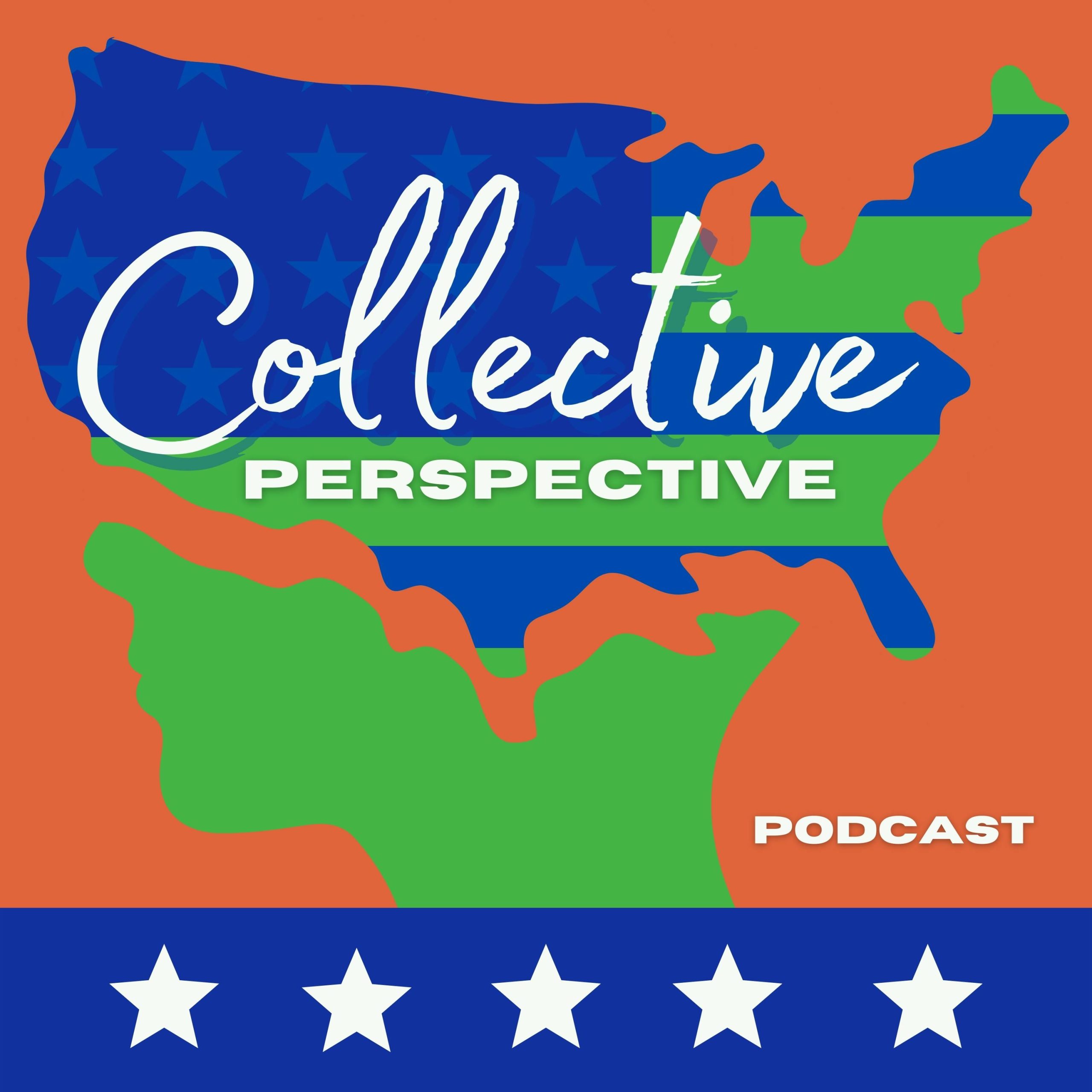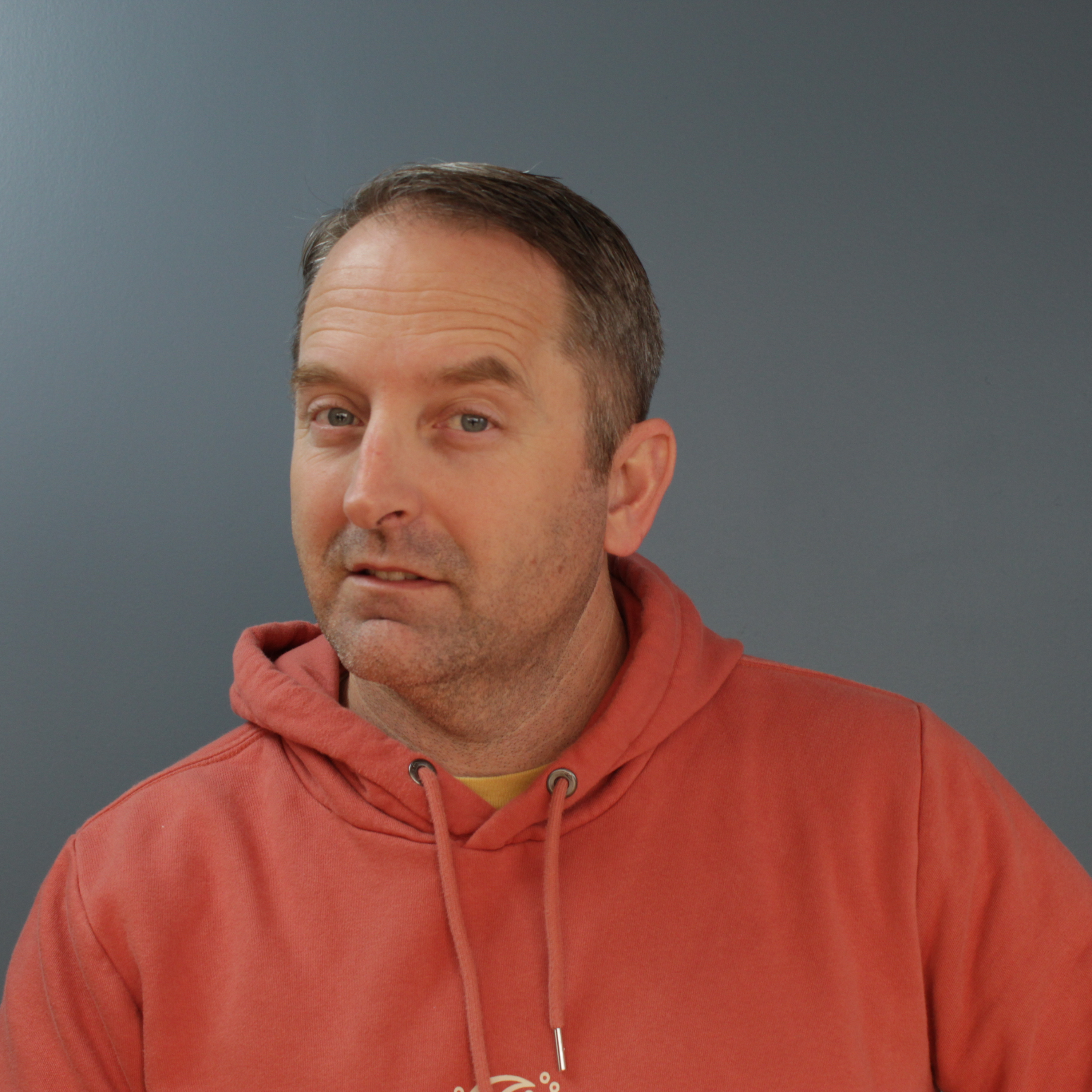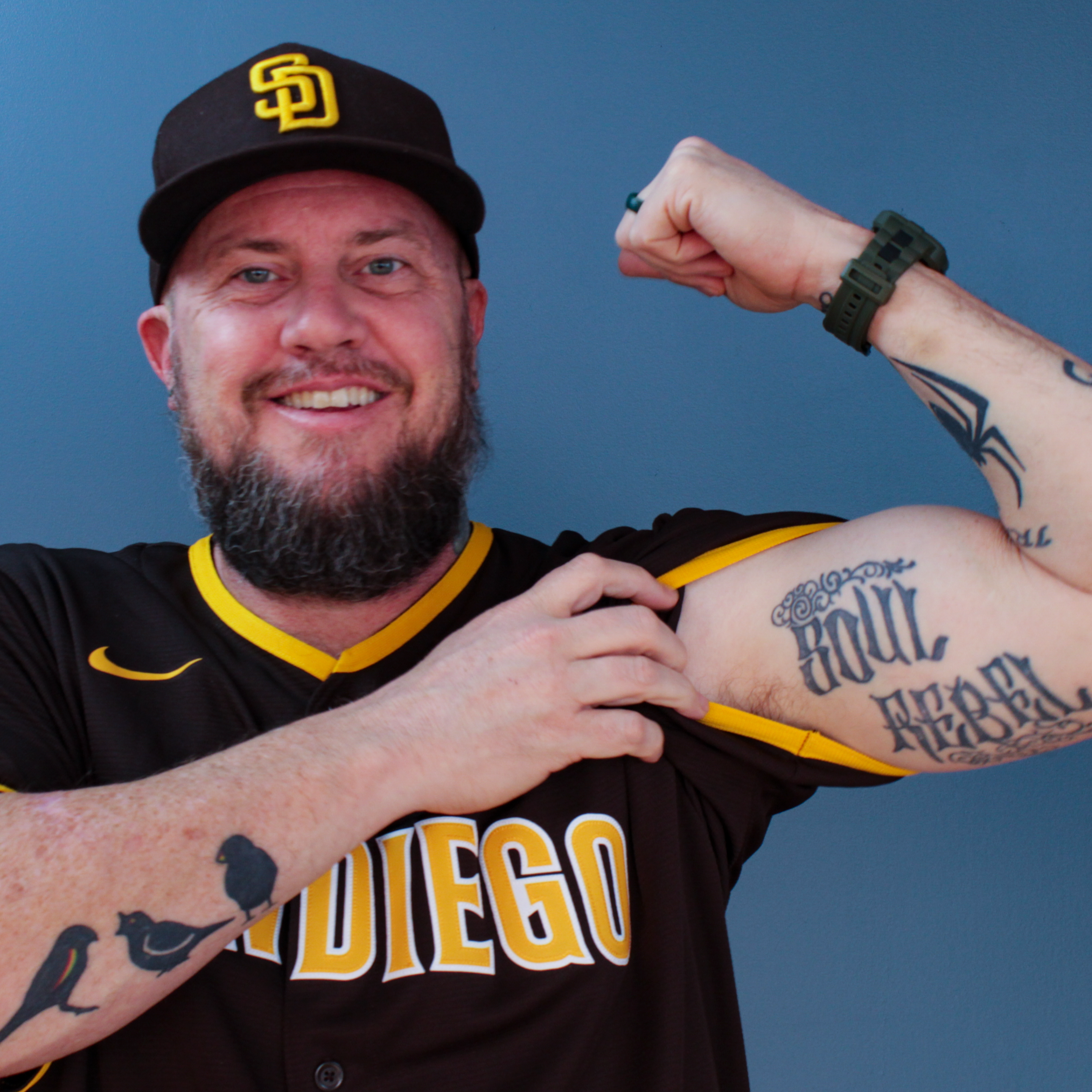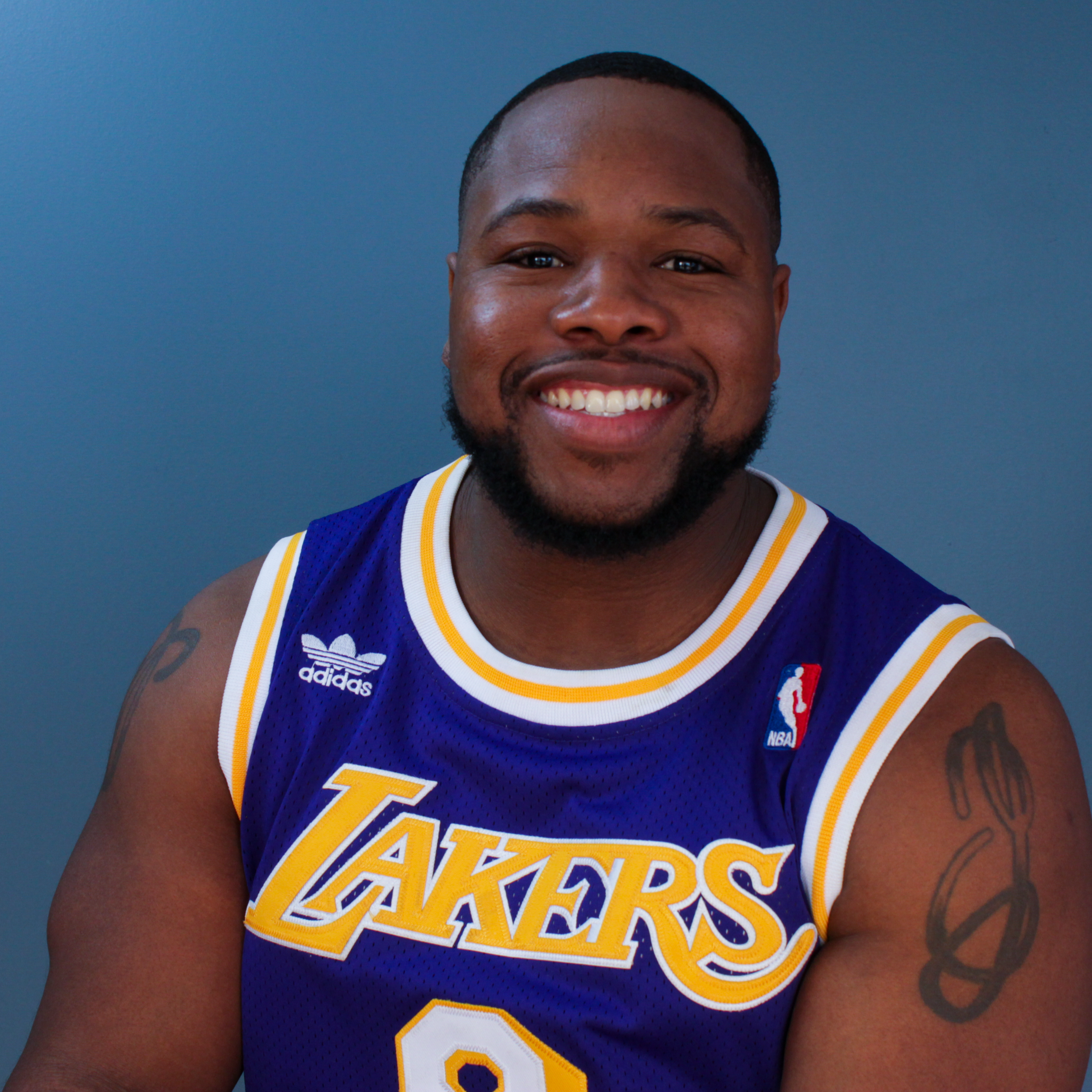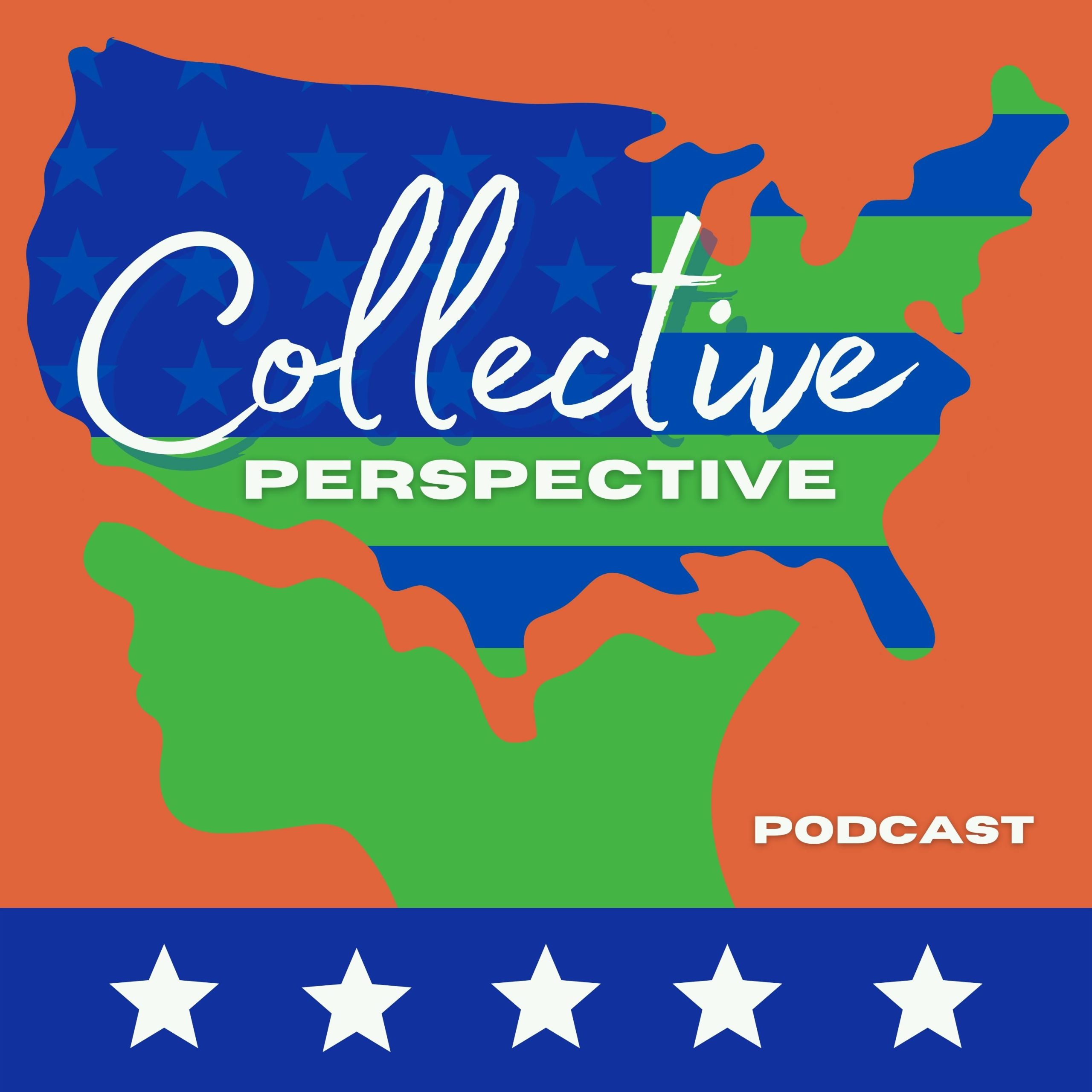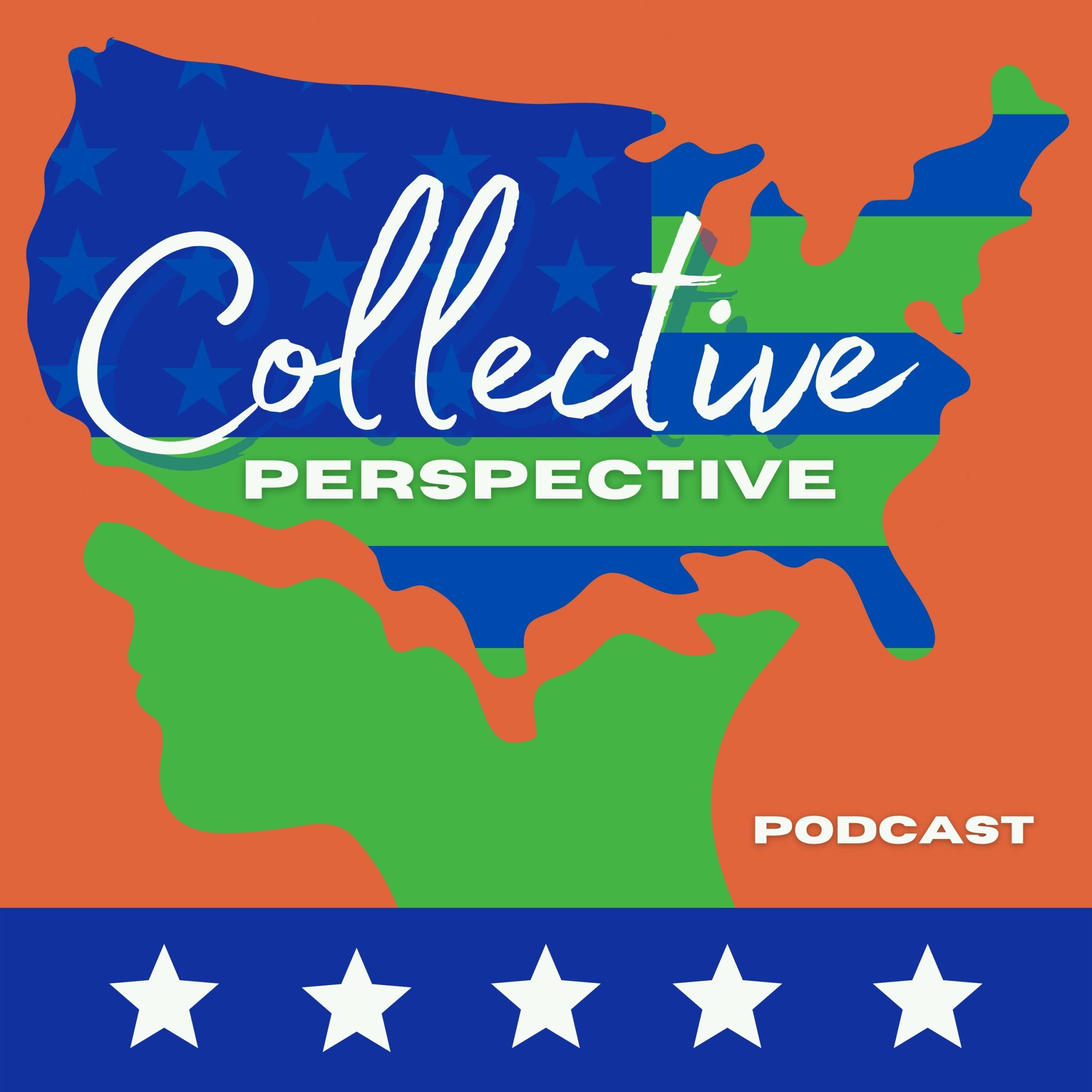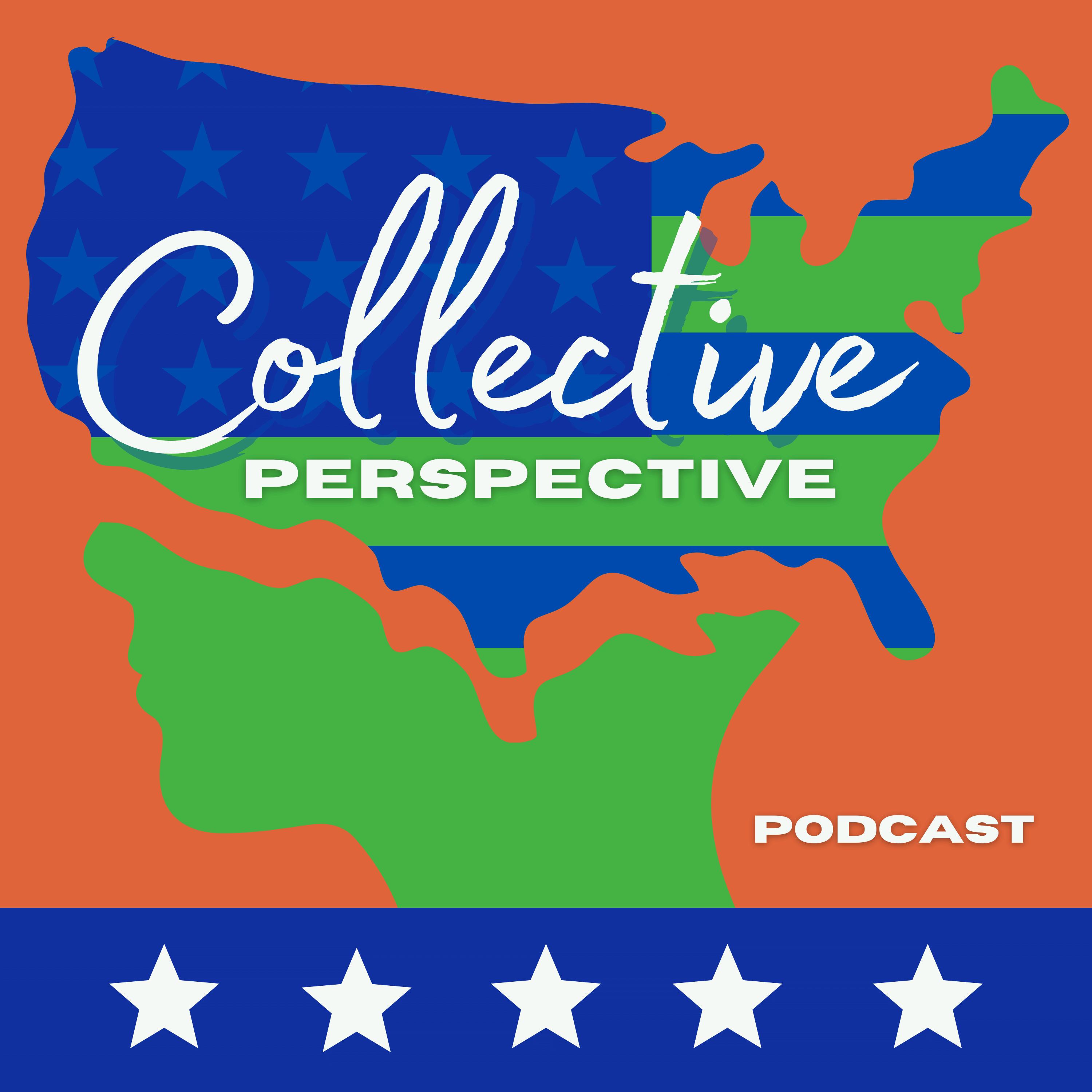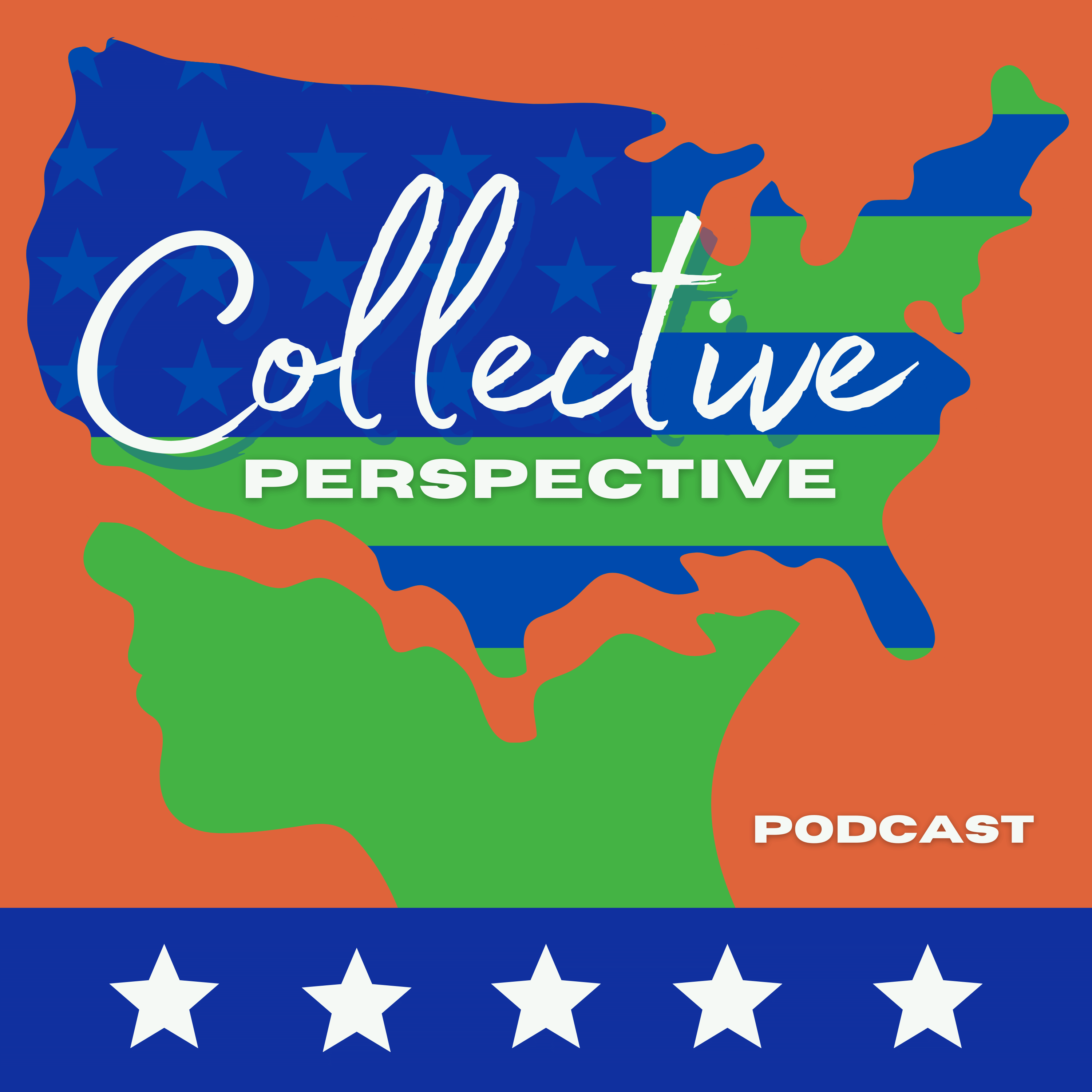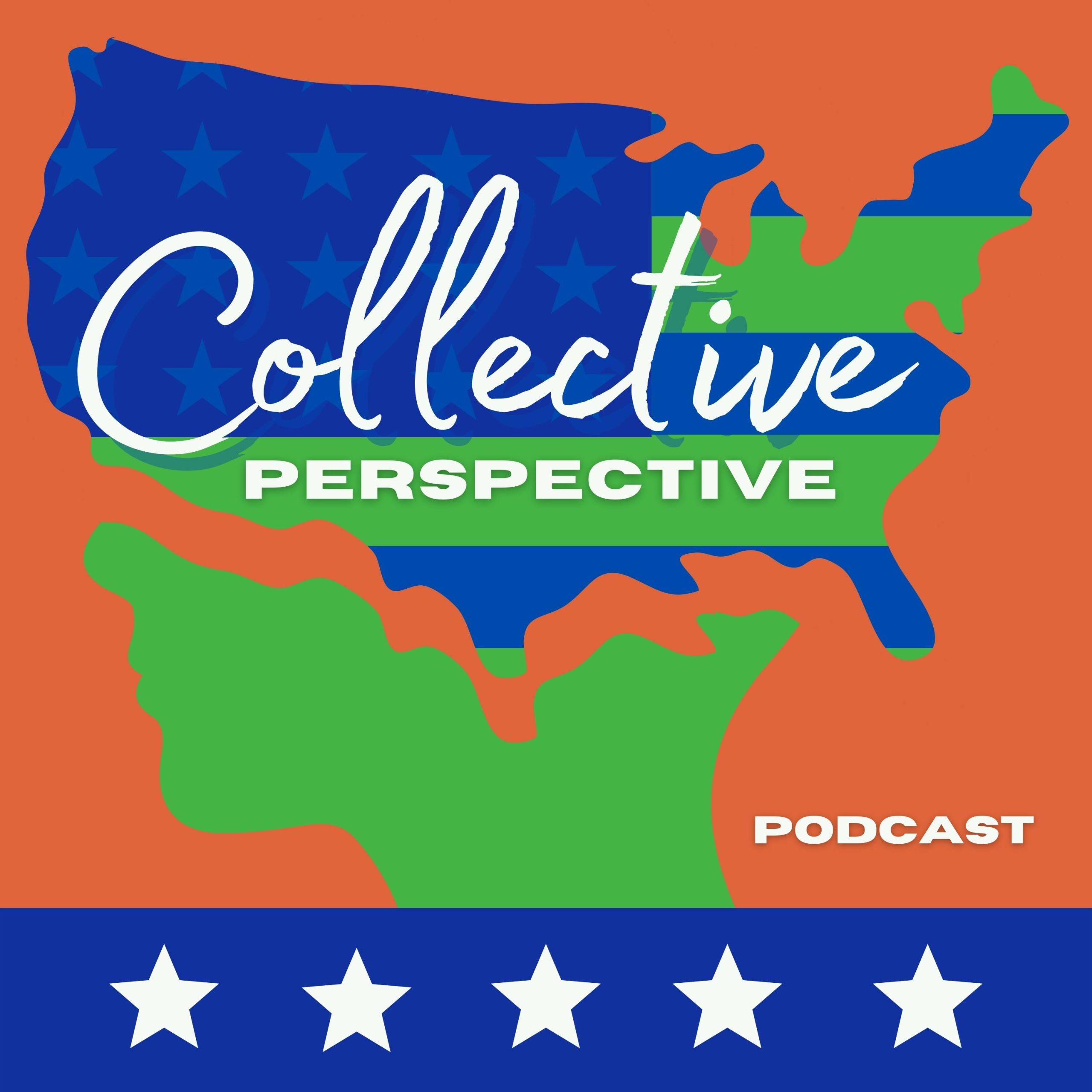We declare that nobody’s feelings or friendships were damaged in the making of this podcast. Warning; This podcast was performed by experienced podcasters and long time friends. The owners of this production company do recommend you try this concept at home, as it can be dangerous to some. We challenge anyone to have a civil debate with someone that has an opposing perspective. We dare you. We would like to thank our forefathers for the bill of rights! Amen. This episode is part 1 of 2.
View Full Transcript
Episode Transcript
Hey everybody, this is Jeff with The Collective Perspective. And again, I have my buddies. This is Travis. This is Jawad. Want to first start out talking about what is tribalism. Because ultimately when people are having differences in some things and they need to work some things out that a lot of times it's ego driven, tribal driven, and I think the most important thing is that tribal bias is natural and nearly eradicable feature of human cognition and that no group, not even one's own, is immune.
I think that kind of plays into egoism as well is that we all have egos And I think confidence is a good thing to have, but also, I think being open minded and being willing to take in other people's perspectives is an important factor. Believe it or not, this is the beginning of the change that we need to see in America.
We need to see, we need to hear. There need to be examples of people getting together that have differences, and they walk away the same way they walked in. And I can say that Travis and I have known each other for, jeez Twenty five plus years? Twenty five plus years. I knew his wife before she was his wife.
We were roommates in the Navy. Spent many years apart. Either I was in Washington and he was in Virginia with his family, or I was in Florida and he was in San Diego, with his family, still traveling around in the military status. I remember days where we would just sit on the phone and have a beer and just kind of just hang out on the phone.
Most people I don't think do that. We would just hang out and probably not even say anything for 20 minutes. You know, sometimes. You know, life, life goes on and you're still hanging, hanging with your bud. You still want to talk. But there are little Distractions in between so yeah, it's just like you're there, but I got it.
Hey, give me a second I'll be right back, you know, and I think that it is important to know that egoism Psychological egoism suggests that all behaviors are motivated by self interest In other words, it suggests every action or behavior or decision of every person is motivated by self interest It also suggests that every action must be motivated by self interest.
And I think that kind of gets into that personal philosophy type of discussion that we were talking about earlier. Like, what are personal philosophies? They encompass your beliefs, priorities, expectations. They can usually be in just a simple, brief sentence. There are generally four components to a personal philosophy.
One would be a theory, and that pertains more to your views and ideas or on your guiding principles. Your attitude encompasses your feelings and describes how you act on those feelings. Your guiding principles are your views and ideas that you use when making life choices, and your behavior relates to how you conduct yourself.
I think earlier we had talked about how we feel that a lot of people may still go by what we call, or what's popularly known as the golden rule, do unto others as you would have them do unto you. That, you know, obviously is a contradiction with egoism because That person has the bright idea that they come in and say, okay, my idea is the best idea.
It may, it may, it may just benefit me in the long run, but if I can sell you on it short term. It'll get me in a, it'll get me in a better position with my idea. I have the bright idea. Personally, I try to run every aspect of my life with the golden rule. Every relationship really, cause that's where it really comes into play, whether it's relationship with the earth or relationship with my wife or relationship with my kids, my friends.
It isn't a self interest thing. As a matter of fact, as a father of two small children at 51, I. Told myself that my purpose on life isn't for selfish interest anymore. It's for my kids interests. Yeah, and that's the goal. I mean we get to a point where we're older We have these kind of intentions and everything is based upon legacy.
It's about legacy and Establishing and leaving something for your kids. But the truth is it's a mindset. It's a concept of life of how they see life That's what you want to leave them with How to be happy or find happiness and peace and stability when you're gone and no need to rely on anyone for that.
And that's the goal. That's really, from a moral perspective, the Bible says that righteous man leaves an inheritance for his children's children. And that inheritance is fake. Not gold. No, it's not any of that. It's all of these worldly treasures. They'll pass. But what can sustain a human? Or sustain a person that legacy you want to leave them is of an inheritance is the faith in God.
It's like generational curses, you know, if you can break your generational curse, that is a huge offset to way that the rest of your whole generation of offspring are going to be. Yeah. And again, that, that deals with trauma. You talk, how do we apply ourselves to this generational trauma that we've experienced that repeats itself in our lives?
I can tell you there's only one book that's taught me all that. Wow. Now, what's that book? The Bible. Yeah, absolutely. And the consistent exposure to it. Which is the reason we go back to egoism. Obviously, it benefits only that person. What you're talking about is a collective of what benefits a group of people.
And not only those people at that present moment, but generations to come. How do you base your philosophy, your life philosophy, Travis? I think, uh Very much like in terms of egoism, it has to benefit me. And when I say something that benefits me, it doesn't necessarily mean my personal self. What benefits me is me, my family, the ones close to me, the ones, my tribe, if you will.
Your crew. So, right. Yeah. I mean, let's get the kids involved, you know. Let's throw some slang out for them. And if I'm not doing well, then I can't provide for the rest of the family. I have to be in top shape physically, mentally, financially, whatever it is, to be able to have time to instill that legacy into my family, into my kids, and to talk about it with other people.
If I don't start with myself, and show that we can love ourselves, what does that leave for our kids? Exactly how I feel. What would you say is your major influence for that philosophy? Is that some type of upbringing? The way that your parents raised you? Is it a book? What would that be? Kind of all of the above.
My mom, when I was younger, would take us to church and I got exposed to the Bible at a young age, but I fell away from it in my young adulthood and I'm coming back to it again. But I've also researched a lot of things and I have read a lot of books in my upbringing, so there are other books. that have other philosophies in them, that I try to take the best of each of them, and I try to relate it to what our country was founded, you know, how our country is supposed to be, in my view.
Being a free society and a free country that we like to claim that we are, I think that, yes, we want to focus on ourselves, but not at the expense of someone else. I think that's the important key is having that moral background that, for me, it was the Bible. To not want, to not hurt somebody to get ahead.
Yeah, I would concur with all of that. That's great. So, there came a day where Travis and I, and there's been very few topics that Travis and I disagree with, other than sports and stuff like that, or who has the better orange juice, is it Florida or California? I would always say California. It's always Florida.
I would always say California. We win this one. You can beat me up. My dad can beat up your dad. My phallus is bigger. I'm just kidding.
So Travis and I had this debate where I said, Hey, uh, I read this book and the author says, and the title of the book is capitalism is broken. It's about Travis rebuttal to me was capitalism isn't broken. And then everything else is kind of a blur. So here we are, talk about it, uh, from that. And we want to get it recorded so everybody can hear it.
And here's the thing is, is that Travis and I aren't into trying to end our relationship. That's not what we're after. We're not after for blood. We're not going to fight. We're not going to. Call each other names. My wife said, you having these differences with Travis, she was like really nervous and anxious.
And she's like, is this going to ruin your relationship? I'm like, if it is, then the last 27 episodes are a waste of our time. This is to show an example. I think you talked about leaving a legacy for your family, leaving a leg in the sea for generations to come. This is an example of that legacy for all of, all three of our kids.
They're going to be able to, hopefully generations down the road, like you got to hear what my granddad did. My great grandfather did. My great great grandfather did this one day. Let's hope it's still that easy to get the access to this. A healthy debate is a desirable part of community. Basically meaning, it's something that we need.
That's what the United States needs. This is the beginning of that. And hopefully people listen and it catches like wildfire. And you can have a decent conversation at Thanksgiving other than what the weather's like. In a healthy debate, people are given room to explain their point of view. I think that's what's a lot of what is wrong with interviews on television is that everything is time restricted.
You have two seconds to get what you have out or the debates in elections, you have 90 seconds to say what you want and every one of them runs over. And it's not a healthy debate. I think keeping on point with that, I agree. The interviews that we see on TV, the people are given a chance to respond to a question.
And it almost seems as if as soon as they say something even remotely controversial, they're interrupted before they can finish their thought. I watch a few interviews. I try to watch the nightly news and more of the local news. I don't necessarily watch a lot of the other news channels, the cable news.
But when I do turn it on, that's what I see is someone will say something that is what they believe and it's a little, it's controversial. Even if it's a little controversial, the interviewer will interject and interrupt them before they can finish their point. You know, it's funny you and I were doing that.
Unintentionally to each other when we first started going back to recording the podcast. I was like Travis I said something you completely like said something completely different, but I have to admit to you. I did that to you last episode A couple times, but not intentionally, I think just when you're debating with someone, it's hearing and comprehending what they're saying, but at the same time, you're usually trying to a lot of debates are got my weapons, you know, have my arsenal of things.
And that, that is very, very important for debate to be successful. The art of hearing that person is key. You have to be able to hear that person. In the healthy airing of differences, people on opposing sides of an argument can reach common ground and compromise, or even agree to disagree and move on. So that's possible.
I don't know what expectation to have of this, other than like I said, I think off air I was talking about, I already know the results of what the compromise is. I'm not going to tell you right now. So emotions, I think is a, another thing to bring up several times. Travis and I started to get into conversations or debates and I could see his face getting red.
You can feel like I'm getting hot and sweaty. I'm finding myself angry. I've also felt in preparation for this conversation at first, you know, to be honest with you, uh, kind of where my heart on my shoulder or my sleeve and I'm pretty open and transparent and especially with you guys and even for the podcast for that matter, I think it's natural what I'm about to tell you.
I get angry. Do you guys get angry? Yes. I get angry when I'm hungry. Oh my God. Angry. Yes. Angry. At the age. I do get that way as well. Yeah. I would say most of the time if I'm hangry or angry, it's cause I'm hungry. Yeah. Well, I mean, at the end of the day, I try to, the Bible says to be slow to anger. That's about controlling your emotions.
The way you look at it for me, I look at it as that, uh, it, emotions are separate from my consciousness of, uh, anger. And I have to tell myself that emotions don't control me, I control my emotions. Well I can tell you that I went through a couple waves of emotions. One was a competitive emotion, feeling like I need to compete, but I kept on having to remind myself that I'm here for a healthy debate at the ultimate Thing is, if I can change someone's perspective, even Travis's just to the slightest, that would be my ultimate goal.
I guess we talk about healthy debate. What is an unhealthy debate? What do you think is what a component to a unhealthy debate? I don't know. You want to ask my ex wife? I think an unhealthy debate is when you demean someone, when you disrespect someone, when you don't respect. They're individualism like we're talking about and then someone comes to the table with egoism and say okay My my idea is better than yours because I'm more intelligent than you my life experiences qualify me Do they really think that they're more intelligent or just that would?
I guess that's, I think that's, that's getting more into the philosophy of things like the id, the ego, the three different parts of the person. Exactly. And you don't want to feel that. Exactly. I mean, everyone thinks that they're the best and that's good, but they may not always be open to alternative views or a different perspective, if you will.
I mean, the older I get, the more I realize, the less I know. I think the older I get, the more open I am. Yeah. Even as a younger person, I think we were both pretty open to new ideas when we were in the military. But we were still kind of, we were very new at it then. Well, we were 25 years younger, too. And at that time, as a youth, your ego says, Okay, I know what I'm doing.
And I'm never gonna die. Before I lose this, I want to give you a Tao saying, Wisdom is knowing that I have nothing. Love is knowing that I'm everything, and in between the two, my life moves. Which is balance. And the Bible says that any imbalance is an abomination to the Lord. It's an abomination. So emotions, the other emotions.
Did you feel any emotions about preparation for this? Or have you, can you tell me about your emotions? Yes, I did have some emotions. And I think they, for what we were discussing and what we were going over, It felt like it was an attack on my personal philosophy. I did feel a little bit of anger. I can't say that I felt any resentment or anything.
More, more of an anger and a, almost like a, I don't know if helpless would be a way to describe it, like not knowing, more of a, not knowing how. To explain it succinctly to get my point across. Well, I think that's where if we keep the negative emotion or don't take it personal, that'll help open that up for you where you, you can say what you wanna say.
Obviously, I don't think you're an idiot at all by any means. Oh my God, I think you're a very intelligent guy. I love you highly. You know, I would do anything in the world for you. I'll always have your back. To me, it was more, and here we are kind of seeming like we're almost already had the conversation because we have, but we had a part of the conversation.
It's not, well, again, we're talking about emotions. I was going to say though, with the emotions, we have talked about emotions before. Oh, we have. Yeah. And how we both admitted that we were Matt. Well, not just with us, but how emotions play a big part in decision making. And how a lot of media plays to that and corporations play on people's emotions because it is easy to manipulate someone when they're in an emotional state.
Absolutely. Or in a vulnerable or a needy state, someone who's not in good health. As far as emotions go, I was feeling, I'd say anger was the biggest emotion that I was feeling and I hope it didn't come across that way in my tone or my voice. Cause sometimes that's where, you know, especially over the phone, that's where people.
We'll notice something like that is a difference in the inflection or how they're speaking. I think it wasn't anger. I think you're just passionate about what you believe in. Passion. Well, it goes back to tribalism, dude. It's ingrained, you know, and I don't ever want to dig to the point. I mean, I know, we know way more about each other than a lot of people do and we have ghosts in the closet, believe it or not.
We would never, ever stoop down to that point. I think that goes to what you said earlier about name calling and stuff, when you've lost the argument. So I think it's important, especially if you're going to try this at Thanksgiving, is to set some rules. I think we've pretty much already discussed what those rules are.
And obviously we're not set out to fight each other. We're not out to call each other names or bring up past things. Here are the list of rules. Travis said he wanted to go over them for everybody else to hear. I think it's important. No, maybe not. Cause this is just the podcast. What do you, how do you guys think about those rules?
I liked the rules, and I think that if everyone knows them, then they can follow, it'll be easier to follow along. I don't want to say that I wrote the way I did write those rules. I love the rules. Thanks, man. I was trying to think of everything that seemed reasonable. All right. So these are the rules.
Speak in turn. There's no time limit. But in order to make this listenable, We each should limit our argument to 45 to 60 seconds, 45 to 60 seconds. Then allow someone else to talk. Do not talk under someone else. Response to the question. You mean like that? Yeah. Response to the question. If the other person is asking you a question, respond to the question.
Then add, et cetera, et cetera. If you fold on your idea, you initially stated then state that, or this is not an even ego driven conversation. I constantly have to remind myself of that while I was preparing for things, because honestly, Travis, I have, my mind works in a technical way, meaning that I'm a problem solver.
You're a problem solver too, but as an audio engineer, man, I have to think of every possible Scenario everything in my life is a process of elimination to make it perfect as I can now I know I can't be perfect. So I don't hold myself to that I'm not saying that if I lose I'm sad my son had his first bout in karate He didn't do that well, if you were to say who won the fight, but what he did gain was how he got beat, how he lost.
Now the next time he goes into that scenario, he has experience behind his belt to know that, this is how I lost, how can I overcome that? I think a competitive nature is healthy. It is. It's healthy in business, it's healthy in, um, even relationships to be competitive. You gotta consider the golden rule at all times.
I think that's really the key to things is, uh, how do you, how do you want to be treated yourself? I was gonna add to that. I think that looking at it in a sport view is dangerous. No, I, I don't think it's dangerous. Well, it is, it is, it is in pocket under, Oh yeah, you're right. Sorry. I think that, um, there are winners and losers and everything.
And just because you lost doesn't mean you can't win the next time. There's always a next time you take that loss. And as Gavin has done, learn how you lost and be able to defend against that loss. If you lose again, it'll be from a different way, but that's still another learning experience. I'm sure Michael Jordan lost a lot of times, growing up, learning.
Right, but that's that personal growth. How did that loss make me better? I think the winner is being able to come up with a common ground, not ego based. I know at the end of the debate, we'll probably still not disagree, but we can find common ground. But I think I'll, Travis and I, let's start the debate.
Ding, ding. I don't think we phrased the debate question. Capitalism is broken. Okay. So going back to it, I read this book, Capitalism is Broken. This is the guy that broke capitalism and the here's why, basically. So I mentioned that to Travis and he said capitalism, capitalism isn't broken. That's kind of where everything kind of gets hazy, where we didn't, we didn't really discuss it any further, but in discussion and preparation for podcasts.
We felt like this is the opportune time to use that as an example of how people can debate and get their point across and not get angry and hate each other at the end of the day, or name call, or demean anybody, or just because, or you walk away knowing that you don't agree, and that's fine too. Travis and I have So, I said capitalism is broken, and Travis said No, it's not.
And that's kind of where it just kind of, kind of got hazy. Probably just like that too. No, it's not. But with more like a growl. We feel it's important to know this, that a simple definition of capitalism. Hey, we wanted you to notice a simple definition of capitalism is often thought of as an economic system in which private actors own and control property in accord with their interests and demand and supply freely set prices and markets in a way that can serve the best interest of society.
The essential feature of capitalism is the motive to make a profit. Right. So basically businesses are in business to make money. Everybody knows that you have to make a certain profit margin and you have to come out ahead. You know, you have overhead, you have wages, you have. Operating costs, logistical costs, all kinds of things.
So on this, it says what the definition of capitalism is, and this is where I think this breaks from my, my, my core belief of self interest, self preservation. That it sets prices and markets in a way that can serve the best interests of society. I think it is more that it serves the best interest of the private actors.
That's what capitalism is because who is society? It's not to benefit society. The product or service may benefit others But how much does it benefit them? Does it make sense? You're saying that it shouldn't be the benefit of society It's the benefit of the individual per the definition. I'm not saying that that's for the definition No, that's my bias coming into it I think that may be my bias coming into it if you pulled this capitalism definition from Whatever you were looking at from a dictionary or whatever then that's what they say You know, I was telling my wife about the debate and she said, if you're the one that the one that the debater is has to come up with the reason why they said that.
Okay, so I think I'll take a whack at it. So why is capitalism broken? My take in from gathering information not only from the book was that capitalism is broken because it's gone from I guess my biggest hang up with and why I think capitalism is broken is because in the early 1960s capitalism was booming.
They just came out of having multiple different shops and being able to have some type of consumer based purchases throughout town and around and everything. The book is generated on GE and Jack Welch. It allows the reader to Here the reason why capitalism is broken because of Jack Welch if I were to say the exact reason would be is because he took It from the people being about the people of the company to stockholder It's called shareholder capitalism and the difference between shareholder capitalism and stakeholder capitalism shareholder capitalism is how Jack Walsh took it from and a perfect example would be in the 1960s when he took over GE was part of Basically, it was the example of a successful business.
He took it from a 14 billion company to 416, 17 billion company. But the way he did it was massive layoffs and basically taking the whole business to a financial group that needed a bailout in 2008. He took an entire company that had parts on the space shuttle, plastic. He took away all of his employees compensation, benefits.
Like I said, I believe he terminated 72, 000 people. He came up with the theory of the bottom 10 percent performers are fired, and the company still does it on a regular basis as of today. I say that because I know a GE employee that concurred that. My whole suspicion of it is the whole reason why ultimately my thought is corporate America is controlling what our government is doing.
Then isn't corporate America, the 1 percent in that majority of the 1 percent and are trying to take over, take over the government. So, I mean, they control the government, corporate America controls the government through lobbyists. I want to make sure I understand what you're saying that Jack Welch, uh, W E L C H, Welch broke capitalism.
How? I want to make sure I'm clear on this. From shareholder to stakeholder or no stakeholder to shareholder. When Ronald Reagan was elected in 1981, they finally had a politician that was willing to do their bidding. Stocks and buybacks are a scheme for the wealth, for the one percenters to make money.
And he's the one that initiated stock buybacks and offshore jobs, paid contractors instead of full time employees. And as a matter of fact, GE was fined 50 million for inflating their earnings. And he took that multi billion dollar company down to needing a bailout from the government. A bailout that was larger than anyone else as 219 billion bailout.
So, to me, capitalism is broken if the people that are selling products to everybody and services are controlling what our government is saying. Through money and they just have they can create monopolies. They can do all this stuff They could break the rules to me. Jack Walsh should have been in prison for what he did in 1990 GE bought back ten billion dollars and buybacks ten billion dollars back You guys do know what a share buyback is, right?
I saw something on that about It's how you inflate the price of something by making it more scarce, kind of like diamonds. Yeah, like supply and demand. So what is a share back? A share back is when companies pay shareholders to buy back their shares, cancel them, and ultimately reduce the share capital.
While fewer shares remain in circulation, shareholders get both a larger stake in the company and higher return of failure dividends. In 2000, they forecasted an Ulta, an operating loss of $200 million and $60 million in energy business GE in 2023. The company's reliable energy business has been facing challenges due to inflation and supply chain surprises.
The unit reported, GE reported in 2022 that they lost 2. 2 billion dollars. Wait a minute, in 2008 we bailed you out 219 billion dollars. I don't know if capitalism isn't broken then what is that? That's not capitalism. What is it? That was my response to you in the beginning and it still remains my response.
What is it then? Is it the government? Because the government is owned by capitalists. Are they not? I think this is We as a whole, in this nation, even in our earliest beginnings, I don't think we have ever been a truly, say, and I know you hate this, but laissez faire capitalism. Oh, I got some laissez faire replies to you.
See that emotion popping up? No, I think it's just more of an emotion of bragging, I guess. So, this, this capitalism, that you say is broken, I think it has never been tried anywhere without some sort of government interference. And that right there puts limits on it and it makes it not a true full fledged capitalism.
I think that we have a mixture of freedom and government controls. But a social system in which government is exclusively devoted to the protection of individual rights, including property rights. True capitalism is one where there is no government intervention in the economy. And where does laissez faire capitalism come from?
Uh, laissez faire is a French term for leave it alone. And, uh, where do you get that belief from? This would be from Ayn Rand. I think that's what you wanted me to say earlier. So what I'm Wait, I was trying to prompt you to say something. In the beginning when you were asking about my history and where I get my beliefs.
When you don't want government in the market of capitalism, who regulates, who's going to regulate it? Who's regulating this system in order for it to function properly? That is a great question. So in a true capitalistic economy, we the people will regulate it. And how do we do that? That would be a big question.
Well, with our money, if a company produces a subpar product or gives you a subpar service, you will not use them again. How about if it's made in China? Just don't buy Chinese product. Again, if it's a subpar product or service, you don't buy it. I think that's where. When people say Jack Welch broke the system by offshoring jobs and cutting people, I think it was in the book and in some of the other videos you've shared with me, they discussed how he, there was a large layer of bureaucracy within GE.
And that's, he did lay off people, and he would lay off that bottom 10 rule. Well, a company, a business, will want to make money. They're not taking it from somebody, they want to make money. And to do that, you have to produce a service or product that people want. If nobody wants it, you're not going to be in business very long.
And if your operating costs are so expensive, you've got to find out You know, all right, how much am I selling and how many people does it take to make that amount and then make layoffs accordingly? I feel that Capitalism is getting the blame for something that was created by I think they called it shareholder Right shareholder capitalism where he was there's shareholder capitalism and welfare capital increasing welfare No, he was, was creating profits for the shareholders.
That was kind of what his main goal was at that, at that point. So my main point of that was, is that he eliminated salaries and pensions to escalate the company to make them more profitable in Wall Street. He didn't do just one thing though. He did a combination of things. He moved production to places where labor was less expensive.
And he moved the money out of America where it wasn't being taxed. See, and that's where I have a And again, that's where we're not getting into what capitalism is. That becomes a crony capitalism, or it's anything but true capitalism, because The government is making an interference. They're saying, all right, well, you have to charge, you have to pay your employees this much.
You have to do this for this employees. Okay, well, how do we get around that? How do we make ourselves better, more profitable? Well, we have less employees, so we don't have to pay as much. We find cheaper raw material to produce the product and then we hide our money in other banks that aren't touched by U.
S. tax laws. So you see where capitalism will dictate what companies will thrive and which ones will fold based on their service or product. If it's inferior, they're going to be out. If they produce a better product, And it's, you know, you can market it made in America. Well, if it's made in America and falls apart in two weeks, that's no good.
I'm going to go somewhere else for that product. But if it's made in America and people really get behind what they're doing, then, and the product will last, then people will buy that product. I think personally, when I go and I look for something, if it's very well made and it's not going to break on me in a year or two years, I want something that's going to last.
I'll buy that product. Does it cost a little bit more? Maybe. I'm okay with that because I know I'm not going to be buying it again in a year or two. Well, I talk people into making those types of decisions almost daily. So, I can understand that. I guess the biggest problem I have is the fact that the guy took a severance pay of 417 million dollars when he retired.
And yet, uh, we're giving a bailout of 219 billion as, uh, tax holders. I do not agree with the bailouts of any company. Did you know that the Ayn Rind Institute asked for a PPP loan? I did not. In their laissez faire. In their laissez faire. That's why I was like, Oh, they're all about laissez faire capitalism where it's less involvement of the government, but yet That philosophy institute of philosophy applied for a PPP loan and got it.
Did they pay it back? Uh, that I didn't get to. See, you're only cherry picking now. I don't know if they did. I didn't know that they took one out because I don't follow the institute. I listened to what they had to say. I was listening to what the original, you know, Ayn Rand. I've read the books, capitalism, the unknown ideal.
Um, because it's never been tried completely. Hey everybody, we felt that this was a good stopping point for this episode. Thanks for listening. Please tune in to next episode, December 28th, which is part two, where Travis and I continue to work through this conversation. Thanks again for listening to the Collective Perspective Podcast.
Peace. Are you tired of not knowing whether the news media is telling us the truth or not? Or maybe you already know they have been deceiving us for our whole lives and our parents. And their parents' lives. Do you believe in diversity of thought? Are you stuck in the middle of the left and the right? Do you believe in healthy debates?
Does context matter to you? If so, this podcast is for you, the Collective Perspective Podcast. Please like and follow our insightful podcasts on all major platforms. Don't just sit there and listen to them. Spread the word.
